As a pet parent, ensuring that your dog receives the right nutrition is one of the most important ways to keep them healthy, happy, and energetic. Much like humans, dogs need a balanced diet that includes a variety of nutrients to meet their physical, emotional, and developmental needs. Understanding the essentials of dog nutrition is key to providing your pet with the best possible care. In this article, we’ll dive into the essential nutritional needs of dogs, helping you make informed choices about their diet

Understanding Dog Nutrition: Why It Matters
The nutritional needs of dogs are different from humans, and their diet should be tailored to meet their specific needs based on their age, breed, size, and activity level. Dogs are obligate carnivores, which means they primarily require animal-based proteins in their diet, but they also benefit from a variety of other nutrients, including fats, carbohydrates, vitamins, and minerals.
Choosing the right food is not just about satisfying your dog’s hunger; it’s about providing them with the energy and nutrients they need to maintain their overall health. Proper nutrition can help prevent various health issues such as obesity, joint problems, digestive issues, and even more severe conditions like heart disease and diabetes.

The Building Blocks of Dog Nutrition
When it comes to a dog’s diet, there are several key components that should be included. Let’s break them down:

1. Protein: The Building Block of Muscle and Tissue
Protein is essential for muscle growth, tissue repair, and overall body function. Dogs need high-quality protein sources that are easily digestible and rich in essential amino acids. These amino acids are critical for maintaining muscle mass, supporting the immune system, and ensuring optimal organ function.
Common animal-based protein sources include chicken, beef, lamb, turkey, and fish. While plant-based proteins can be included in the diet, they are not as nutritionally complete as animal proteins for dogs. Always look for foods with named animal proteins (e.g., “chicken meal,” “beef,” or “salmon”) as the first ingredient.
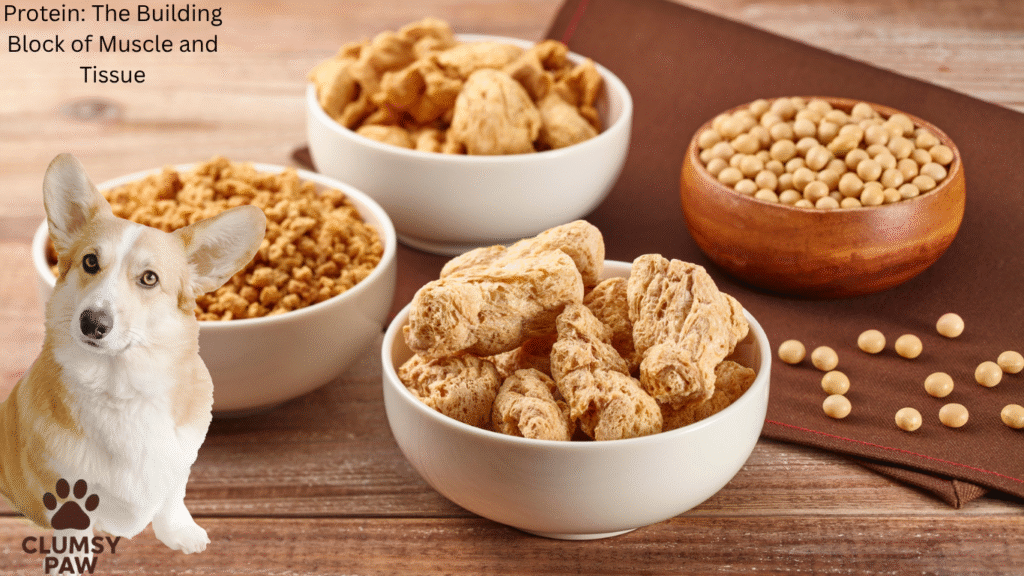
2. Fats: A Source of Energy and Vital Fatty Acids
Fats are a concentrated source of energy for dogs, and they are essential for maintaining healthy skin, a shiny coat, and overall cell function. Healthy fats also support cognitive function and help your dog absorb fat-soluble vitamins (A, D, E, and K).
Sources of healthy fats in dog food include chicken fat, fish oil, and flaxseed. Omega-3 and omega-6 fatty acids are particularly important for supporting joint health, reducing inflammation, and promoting a shiny coat. Foods rich in fish, like salmon and mackerel, provide these essential fatty acids.
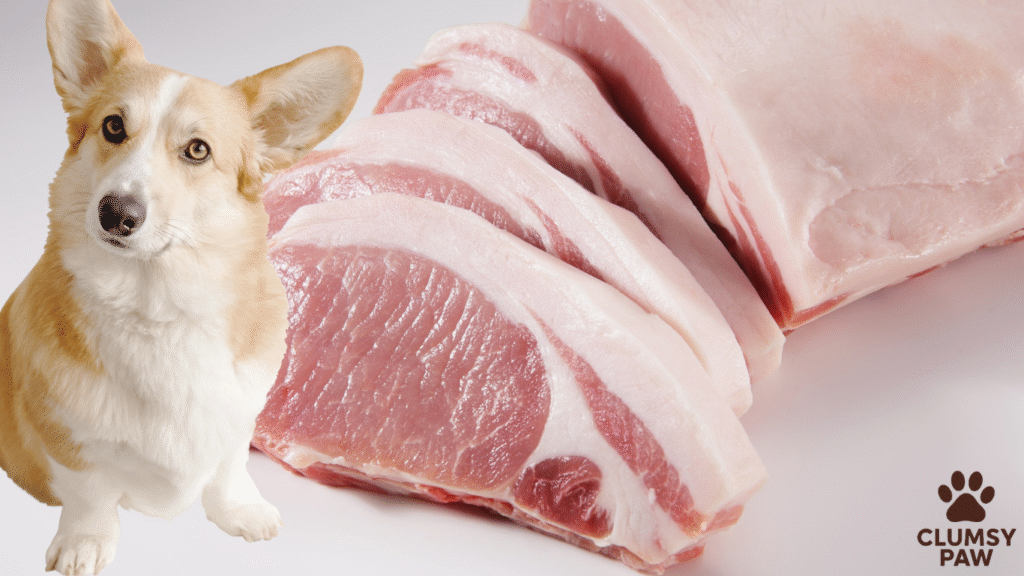
3. Carbohydrates: Energy and Digestive Health
While dogs are primarily carnivores, they can digest carbohydrates and benefit from the energy they provide. Carbohydrates are a good source of fiber, which is essential for maintaining digestive health and regulating bowel movements. Additionally, they help provide a slow, sustained release of energy, especially for highly active dogs.
Common carbohydrate sources for dogs include rice, sweet potatoes, oats, and barley. These ingredients are not only energy-dense but also provide essential vitamins and minerals. Whole grains are better than refined grains because they contain more fiber and nutrients.
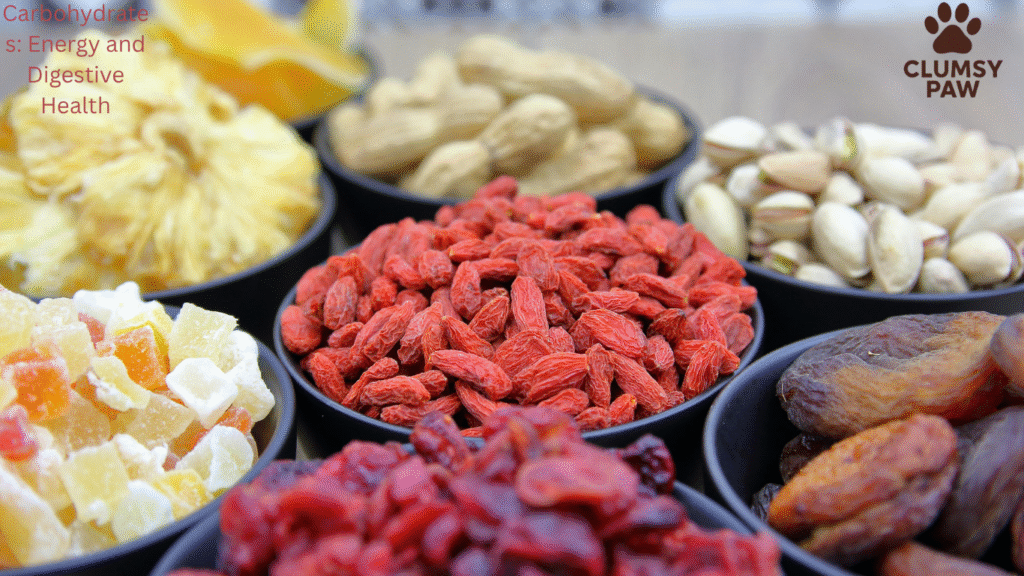
4. Vitamins and Minerals: Supporting Overall Health
Vitamins and minerals are critical for maintaining your dog’s immune system, bone health, and overall well-being. Some of the most important vitamins for dogs include:
- Vitamin A: Supports healthy vision and skin.
- Vitamin D: Important for calcium absorption and bone health.
- Vitamin E: Acts as an antioxidant and promotes healthy skin.
- Vitamin K: Plays a role in blood clotting.
Minerals such as calcium and phosphorus are also crucial for bone health, while potassium, magnesium, and sodium help regulate fluid balance and nerve function.
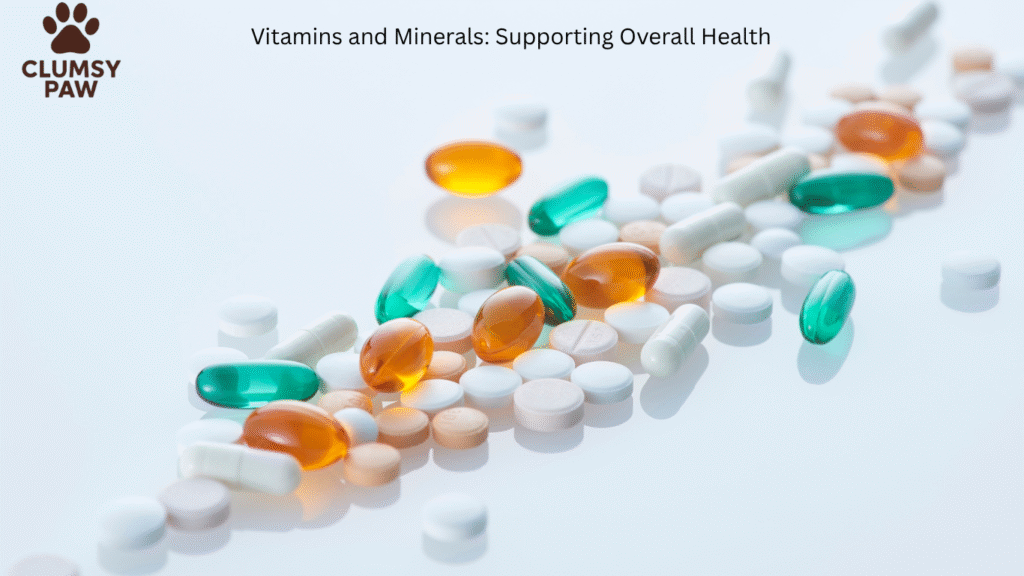
Tailoring Your Dog’s Diet: Age, Size, and Activity Level
Not all dogs have the same nutritional needs. A puppy’s diet will differ significantly from that of an adult dog, and senior dogs may require special dietary considerations. Additionally, a dog’s size, breed, and activity level can affect the type of food that’s best for them.
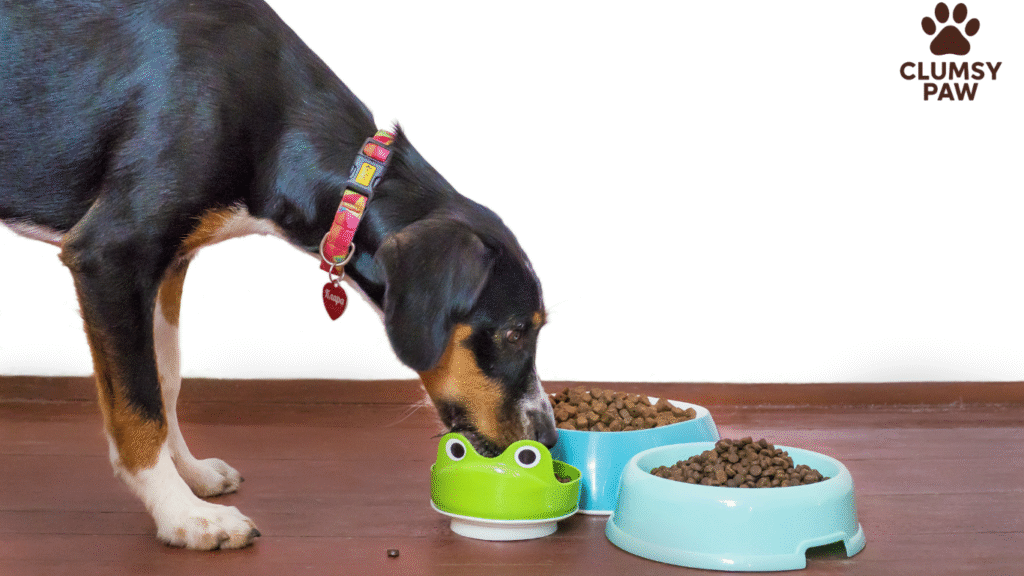
1. Puppies: Nutrient-Dense Diets for Growth
Puppies have higher energy requirements than adult dogs, as they are growing rapidly. They need a diet that is rich in protein and fat to support their development. Puppy food is specifically formulated to provide the additional nutrients they need for healthy growth and development, including higher levels of DHA (docosahexaenoic acid), which supports brain and eye development.
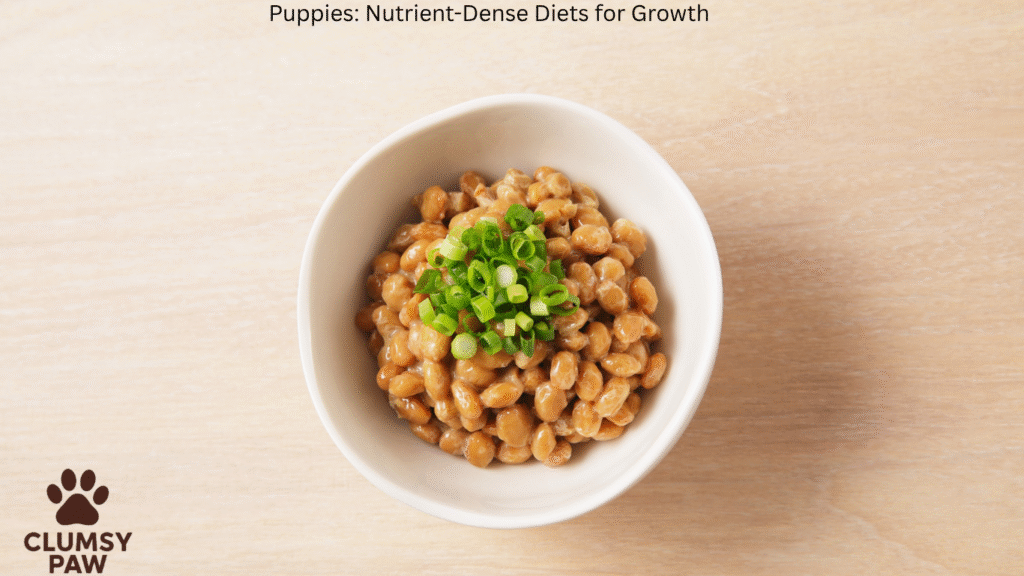
2. Adult Dogs: Balanced Nutrition for Maintenance
Once your dog reaches adulthood, their energy needs will stabilize. Adult dog food should provide a balance of protein, fat, carbohydrates, and essential vitamins and minerals to maintain muscle mass, a healthy coat, and overall well-being. It’s important to feed your adult dog the right amount of food to prevent obesity, which can lead to various health issues.

3. Senior Dogs: Tailored Nutrition for Aging Pets
As dogs age, their metabolism slows down, and they may become less active. Senior dogs may also develop specific health problems, such as joint pain or dental issues, that require special attention. Senior dog food typically contains fewer calories but is rich in antioxidants, joint-supporting nutrients (such as glucosamine and chondroitin), and higher levels of fiber for digestion.

Special Dietary Considerations
Some dogs may have specific dietary needs or health conditions that require special attention. Here are a few examples:
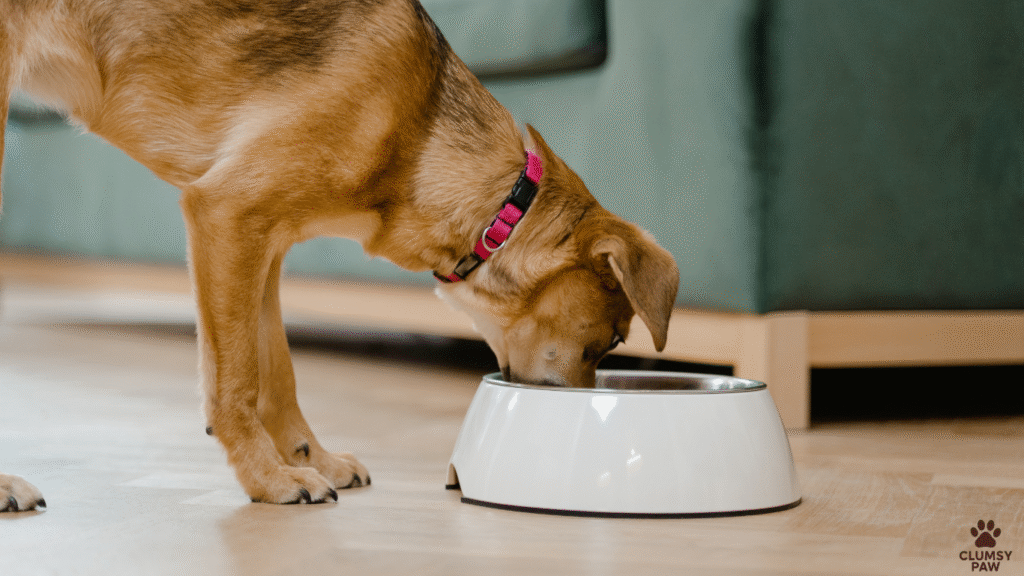
1. Food Allergies and Sensitivities
Food allergies can cause digestive upset, skin irritation, and ear infections. If your dog has been diagnosed with food allergies, you may need to avoid common allergens such as grains, chicken, or beef. There are many hypoallergenic dog foods on the market that contain limited ingredients to reduce the risk of allergic reactions.

2. Weight Management
Obesity is a common issue in dogs, particularly in pet parents who may not be aware of portion sizes or who give their dogs too many treats. Weight management diets are designed to provide fewer calories while still meeting your dog’s nutritional needs. These diets are usually higher in fiber to help your dog feel full longer.

3. Health Conditions
If your dog has specific health conditions like kidney disease, heart disease, or diabetes, they may require specialized food to manage these conditions. Prescription dog food from a vet may be necessary to ensure that your dog gets the right balance of nutrients while managing their condition.
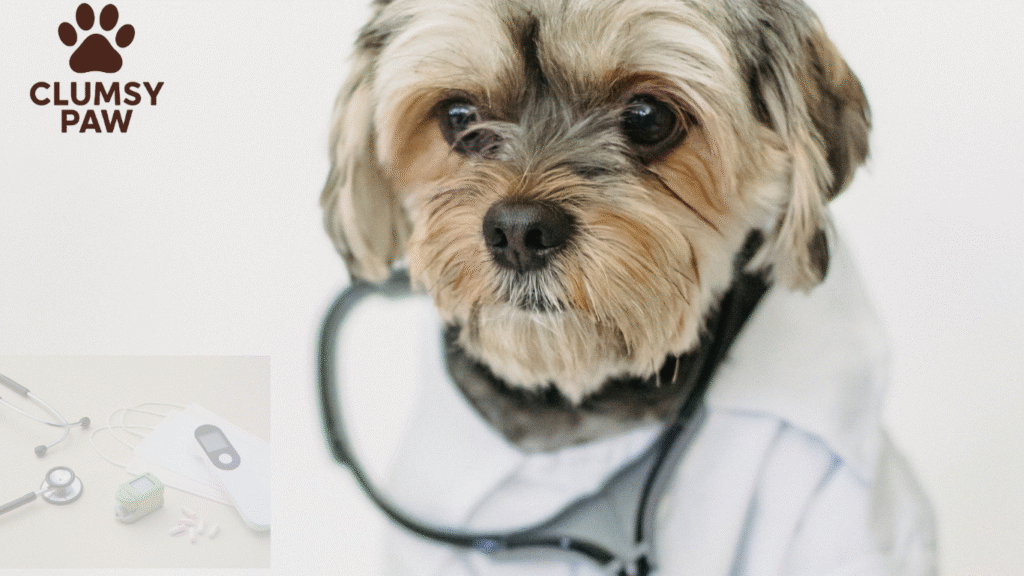
Treats: How Much Is Too Much?
While treats are a great way to reward your dog, they should not make up more than 10% of their daily caloric intake. Overfeeding treats can lead to obesity, and some treats may not offer much nutritional value. Opt for healthy, low-calorie treats such as carrot sticks, apples, or commercially available treats designed with nutrition in mind.

Understanding Dog Food Labels
When choosing dog food, it’s essential to read the label carefully. Look for high-quality ingredients and check for nutritional adequacy statements on the packaging. The Association of American Feed Control Officials (AAFCO) sets guidelines for dog food labeling, so make sure that the food you choose meets these standards. Here are some things to look for:
- Named animal protein as the first ingredient.
- Whole grains or vegetables as sources of carbohydrates.
- No artificial colors, flavors, or preservatives.
- Balanced nutrient profile that is appropriate for your dog’s life stage (puppy, adult, senior).

Conclusion: Giving Your Dog the Best Nutrition
Providing your dog with the right nutrition is key to ensuring they live a long, healthy, and happy life. As a pet parent, you are responsible for their health and well-being, so it’s crucial to feed them a balanced, nutrient-rich diet that supports their individual needs. Whether you’re choosing a commercially prepared dog food or preparing homemade meals for your pet, make sure to prioritize high-quality proteins, healthy fats, and essential vitamins and minerals.
Consult with your vet if you have any concerns about your dog’s diet or nutritional needs, especially if your dog has a specific health condition or if you’re considering switching to a new food. A well-fed dog is a happy dog, and by providing them with the right nutrition, you are ensuring they stay by your side for many years to come.

By following these guidelines, you can ensure your dog is receiving the nutrition they need to thrive. Healthy eating habits start early, and by making informed decisions about your dog’s diet, you are setting them up for a lifetime of good health.

